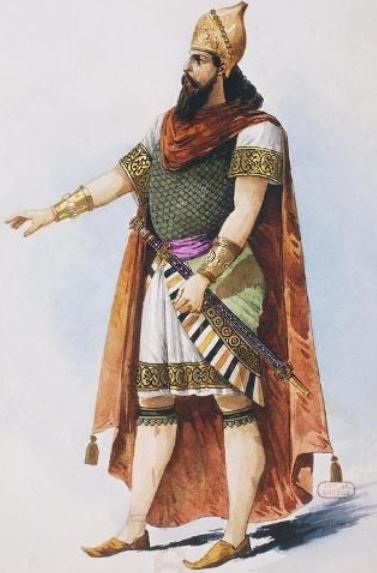Aga Khan I, also known as Hasan Ali Shah, was a pivotal figure in the history of the Nizari Ismaili Muslim community. Born in 1804 in the Iranian city of Kahak, he became the first Imam to bear the title “Aga Khan,” a name that would become synonymous with the spiritual leadership of the Ismaili Muslims. His life was marked by significant political and religious achievements, as well as challenges that shaped the future of the Ismaili community.
Early Life and Background
Hasan Ali Shah was born into a prominent family with a lineage tracing back to the Prophet Muhammad through his daughter Fatimah and her husband Ali, the first Imam of the Shia Muslims. His father, Shah Khalilullah, was the 45th Imam of the Nizari Ismailis, and upon his death, Hasan Ali Shah succeeded him as the 46th Imam at a young age.
The early 19th century was a period of political instability in Persia (modern-day Iran), where Hasan Ali Shah was born. The Qajar dynasty, under the rule of Fath Ali Shah, was consolidating its power, and the young Imam found himself navigating a complex and often treacherous political landscape.
Ascension to the Imamate and Title of Aga Khan
In 1818, Fath Ali Shah, impressed by the young Imam’s lineage and leadership qualities, bestowed upon him the title “Aga Khan,” meaning “lord and master.” This title marked the beginning of a new era for the Nizari Ismailis, as it symbolized both spiritual and temporal authority.
However, the relationship between Aga Khan I and the Persian authorities was not without conflict. As the leader of a religious minority, Aga Khan I often found himself at odds with the Qajar rulers. In 1838, after a dispute with the Persian government, Aga Khan I led a revolt against the Shah, which ultimately failed, forcing him to flee Persia.
Migration to India and Leadership
After his departure from Persia, Aga Khan I sought refuge in Afghanistan before eventually making his way to British India in 1846. The British, recognizing his influence and leadership abilities, welcomed him and provided him with a pension. Settling in Bombay (now Mumbai), Aga Khan I established the Ismaili community’s new base of operations, further strengthening his leadership.
In India, Aga Khan I played a crucial role in organizing the Ismaili community, which had been dispersed across various regions. He focused on consolidating the community’s religious practices, establishing educational institutions, and ensuring the welfare of his followers. His leadership was marked by a deep commitment to the spiritual and material well-being of the Ismailis.
Relations with the British Empire
Aga Khan I’s relationship with the British was one of mutual respect and cooperation. The British valued his loyalty and his ability to influence the Muslim community in India, while Aga Khan I saw the British as potential allies in securing the future of the Ismaili community.
During the Indian Rebellion of 1857, Aga Khan I remained loyal to the British, which further cemented his relationship with the colonial authorities. His loyalty was rewarded with various honors, and he became a key intermediary between the British and the Muslim population in India.
Legacy and Death
Aga Khan I passed away on April 12, 1881, in Bombay. His death marked the end of an era, but his legacy lived on through his descendants and the institutions he established. He was succeeded by his son, Aga Khan II, who continued his father’s work in leading and modernizing the Ismaili community.
Aga Khan I is remembered for his resilience, leadership, and ability to navigate the complex political environments of Persia and India. His decision to migrate to India laid the foundation for the Ismaili community’s growth and development in the subcontinent, which would later expand globally under the leadership of his successors.
Aga Khan I was a leader who faced immense challenges but managed to secure and strengthen the Ismaili community during a tumultuous period in history. His legacy is one of adaptability, leadership, and a deep commitment to his followers, setting the stage for the global Ismaili community that exists today.




